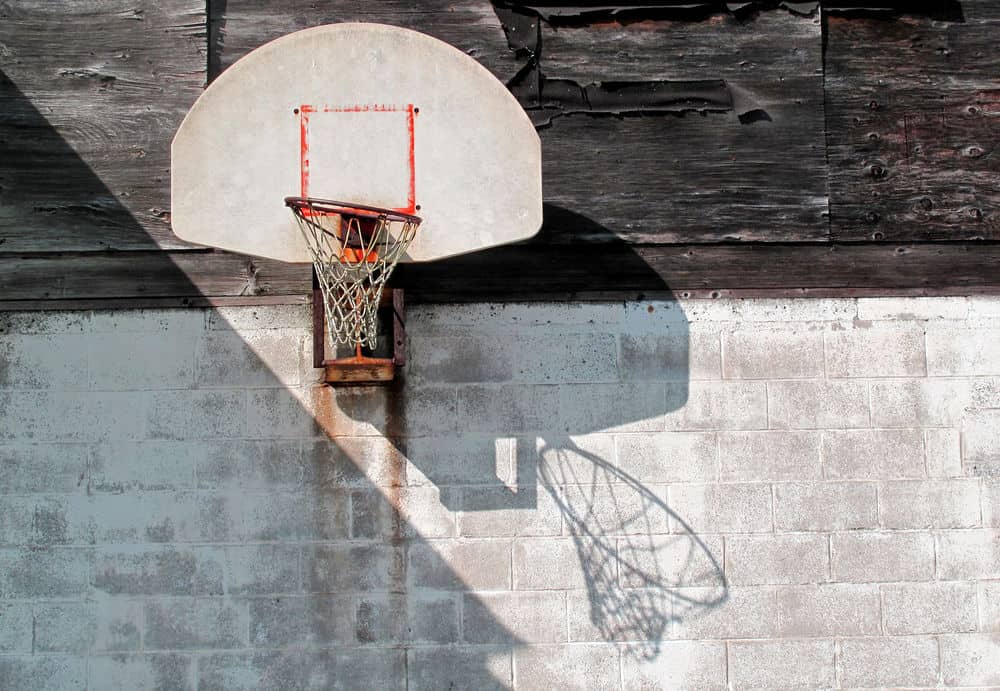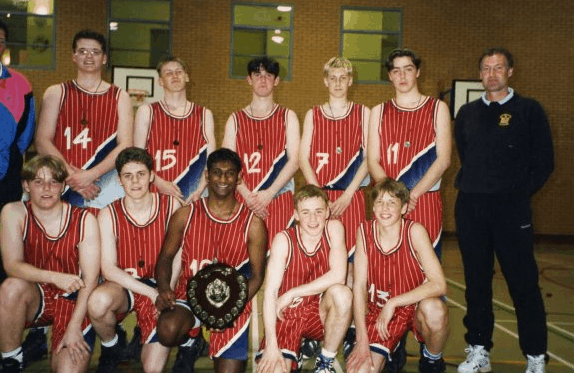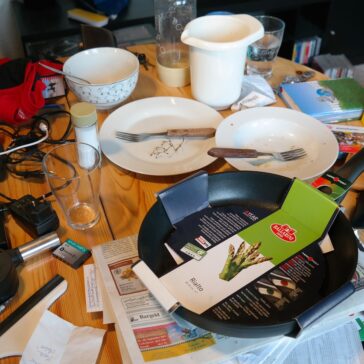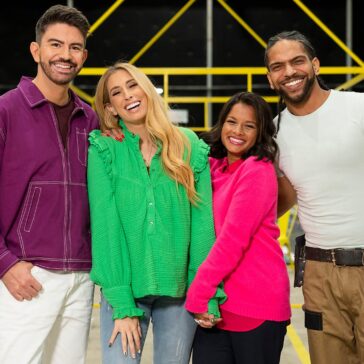
My favourite sport as a teenager was basketball and it’s a sport I still follow. I check the NBA scores, watch the highlights on the internet and listen to basketball podcasts.
When I was a teenager I was crazy about basketball. I used to dribble my ball to school. Go to early shooting sessions before school. We used to play pick-up games on the bent hoops on the school playground (until the caretaker came and threw us off). Due to the lack of places to play, you pretty much had to play whenever and wherever you could. We signed up for any team or tournament going. We would watch grainy VHS recordings of the NBA All-Star game two months after it happened. We craved any chance to see NBA games and the exploits of Michael Jordan in those pre-internet days.

If you paid any attention to the men’s and women’s basketball tournaments at the Rio Olympics. You will be aware that neither the men’s or women’s GB teams qualified. They only played in the London games as we were hosts.
The Olympics were amazing! I did not know what to do with myself when it finished. I was engrossed. As much as I enjoy rowing, sailing and equestrian medals at the Olympics, it is not the be all and end all of sport. Plenty of money has been channelled towards those sports as they have medal potential and UK Sport that provides that elite funding, have been rewarded in doing that.
However, as soon as the Olympics finish, the story quickly turns to legacy. How do we take this medal success and turn it into more people taking up the sports?
This is the role of Sport England (and Scottish, Welsh and Northern Irish equivalents) – to build the foundations of a community sport system, grow the number of people participating; sustain participation levels; and help more talented people from all diverse backgrounds excel helping them move up to the elite level that will serve UK Sport.
If UK Sport and Sport England is serious about getting younger people involved in sport then I think basketball is a sport that should be heavily funded and promoted. It is the second most popular team sport played by teenagers in the UK (behind football). Nearly 218,000 people play basketball in the UK every week with half of those kids coming from black and minority ethnic communities.
GB basketball funding was cut due to the perceived poor performance at the London Olympics and EuroBasket Qualifiers and lack of medal chances. These cuts in funding are killing any further progression of the game.
Lots of people talk about the grass roots of sports. Where are the next champions going to come from? Obviously, we are doing well in some aspects, Adam Peaty for example. But that was the first men’s swimming gold medal in 18 years.
We could we use the Davis Cup Tennis Team as an example of success? In 2010, the team were playing Turkey in the Europe/Africa Zone Group II. A loss would have sent them to the lowest tier on Davis Cup. Five years later they are winning the whole thing. Yes, Andy Murray’s willing participation has been a massive shot in the arm to the success, and maybe he did not go through the British Tennis System, but the team’s success will likely have a huge impact on the sport at grass roots level.
Think about the boost that hockey is going to have after Rio. Gold success and fantastic role models are going to have girls and women up and down the country, dusting off those hockey sticks that had been gathering dust in the garage. Check out what England Hockey are already doing with Hockeyfest.
The whole reason the International Rugby Union lobbied so hard to get Rugby Sevens included at the Rio games was to get their sport shown to a global TV audience. The Team GB Ladies fourth place and the Men’s silver will have done wonders for the sports image and popularity. #rugbysevens was tweeted 550 million times across the duration of the Olympics Sevens tournament. 25% of these tweets were from Japan where the 2019 Rugby World Cup is taking place and the next Olympics that are in Tokyo.
Look at everyone favourite Olympic sport. Taekwondo. That sport had a great haul of medals from Rio. The success of Lutalo Muhammad and Jades Jones shows that getting kids interested in the sport at an early age and developing them, works.
Could the same not happen for basketball? You have to start somewhere and cutting funding is not going to help. The GB Men’s Basketball team could have had a similar story to the Davis Cup team.
The Men’s team only won one game at the London Olympics. Four years before, they were in Group C, along the worst teams in Europe. Before that there wasn’t even team. At the London Olympics, they played Spain (silver medallists) and lost by a point. That has to be a sign of progression.
As with most sports, basketball is relying on the passion of its volunteers and the clubs surviving with a hand to mouth existence. I will admit I am biased towards basketball and that I do not have my finger on the pulse of teen basketball in Britain. But I do not see the increase in the number courts or the people playing on them. I do see the existing courts, empty due to lack of maintenance. The same bent rings (or missing); just like the ones I played on when I was younger.
Hopefully, the regular season NBA games that are played in the UK will help draw people to the sport, but the games could just be a way of NBA extending their global reach. Sport manufacturers could have a big part to pay. If Under Armour wants to continue to take on Nike then running camps and organising events in the UK as they do in the US would be a great thing.
Someone somewhere is obviously doing something right. I was going to say that some of the individual gold medals at Rio may be difficult to replicate. But thinking about it, maybe not. Most of them come from young kids who get interested in a sport at a young age, showed a spark of talent were encouraged and nurtured which leads to success.
It is a difficult argument to have about the amount of lottery funding per Team GB gold medal. For clarity, the table below shows these figures.
| Sport | Funding (£ millions) | Rio 2016 Medals | Price per medal (£ millions) |
| Athletics | 26.8 | 7 | 3.8 |
| Cycling | 30 | 12 | 2.5 |
| Rowing | 33 | 5 | 6.6 |
Source – BBC 5 Live Sport Special 21st August 2016
Can you put a price on inspiring young people? Can you put a price on the infectious feel-good factor that London 2012 generated? Maybe it is money well spent if it gets a few people to off the sofa and down to the local hockey club or bike shop and keeps them out of the hospital.
I heard a good example recently about the success of Jamaican sprinting. Malcolm Gladwell (author and journalist) said that his nephew’s school in Jamaica (not sure what age, but fairly young) has a track coach. He said that there was no chance of you being good a running in Jamaica and you slipping through the gaps. You will be found.
This could be the way to go, but the kids have to have an opportunity and with basketball being the second most popular team sport maybe UK Sport and Sport England should look at where their money is being spent and create a legacy that will go further that one Olympic cycle.



